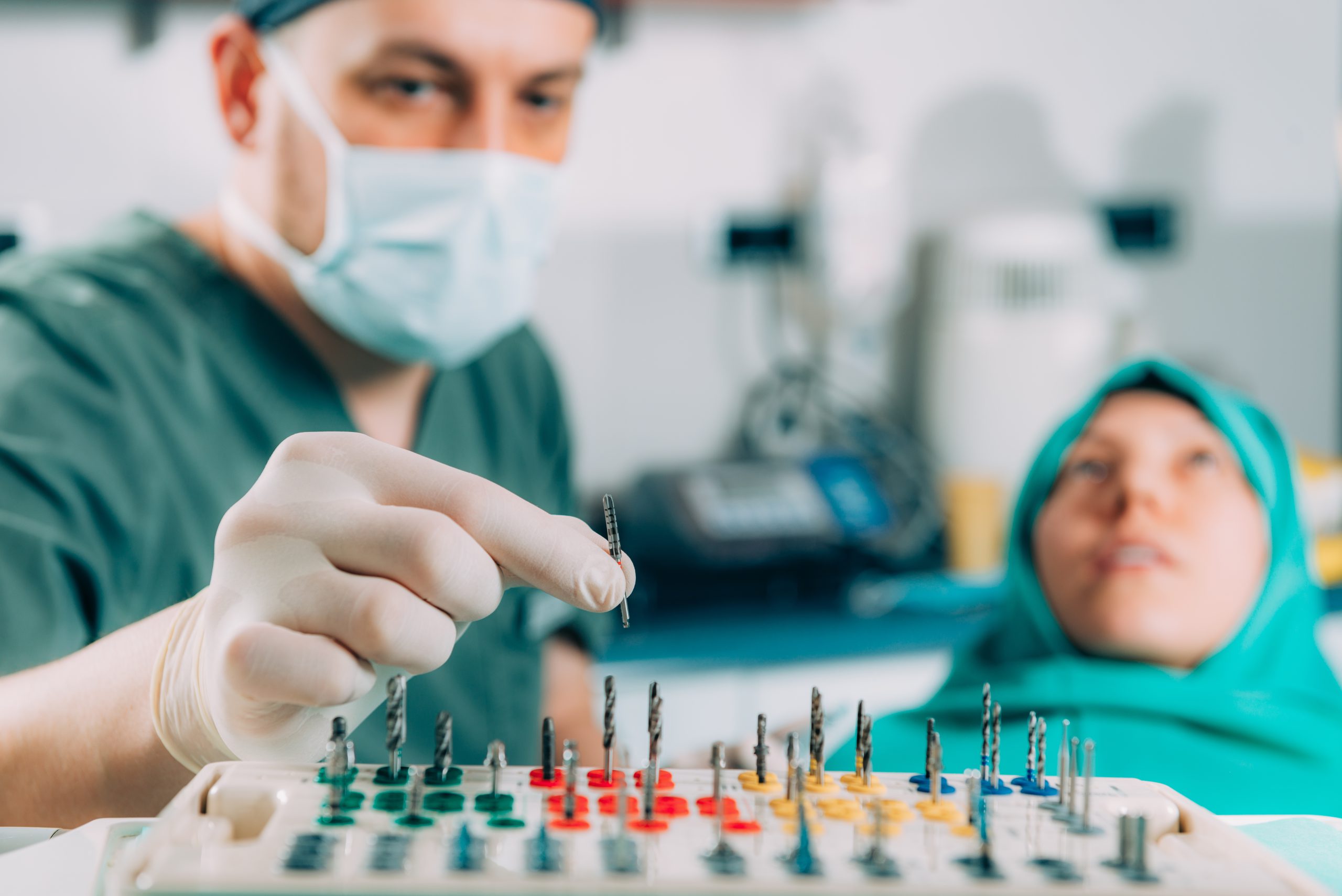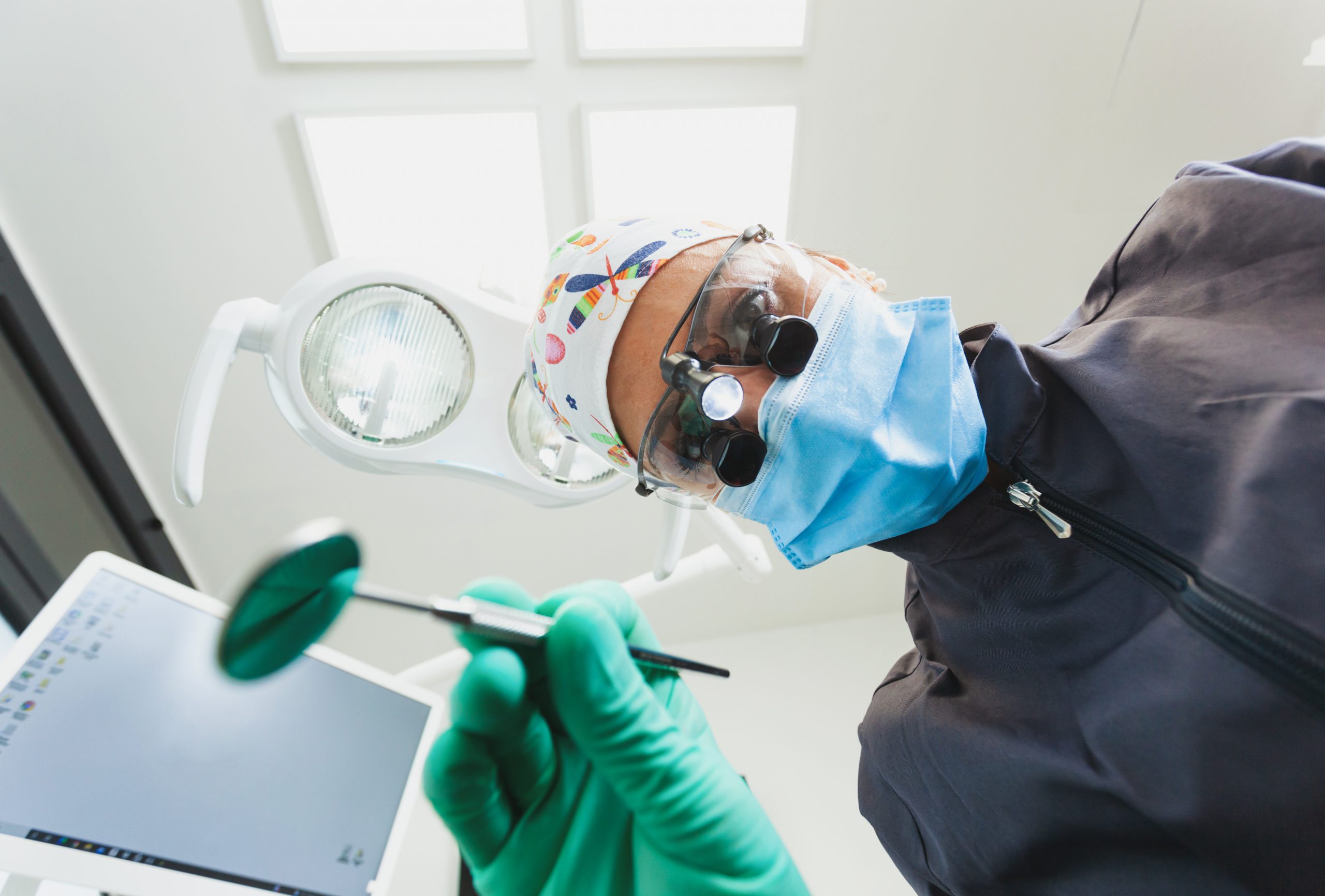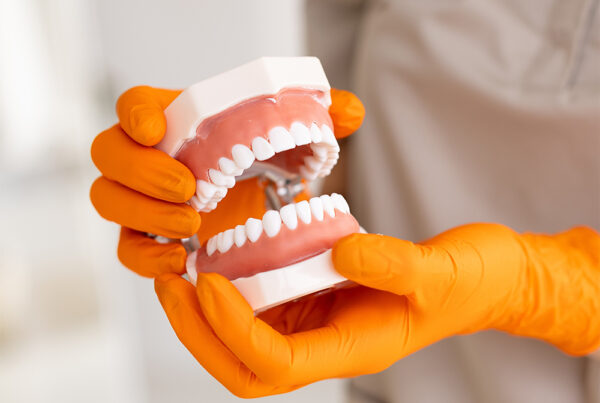Dental implants are a popular and effective way to replace missing teeth. The procedure involves placing a titanium post into the jawbone, which serves as an artificial root for the new tooth. This post is then topped with a crown or bridge to restore the appearance of your smile. While dental implant surgery can be intimidating, it’s important to understand that it’s a safe and reliable procedure with excellent long-term results. Here’s what you need to know about the steps of a dental implant operation.
Dental Implant Process
Here are the steps of an dental implant operation.
Consultation
The first step in any dental implant procedure is an initial consultation with your dentist. During this appointment, your dentist will evaluate your overall oral health and discuss your goals for treatment. They will also take X-rays and impressions of your mouth to create a plan for the placement of the implant posts. If you have any existing dental issues such as gum disease or decay, these must be addressed before proceeding with surgery.

Appointment
Once you have been approved for surgery, your dentist will refer you to an oral surgeon who specializes in dental implants. At this appointment, the surgeon will review all of your records and discuss the details of the procedure with you in detail. They may also recommend sedation or anesthesia if needed during the operation.
Preparation for Operation
On the day of surgery, you will arrive at the surgical center where you will receive local anesthesia or IV sedation if necessary. The area around where the implant post will be placed is then numbed using local anesthesia so that no pain is felt during surgery. The surgeon then creates an incision in your gums to expose the underlying bone structure before drilling a small hole into it for placement of the titanium post. Once securely inserted into place, stitches are used to close up any remaining incisions and promote healing in the area around it.
Osseointegration
The next step is called osseointegration, which is when bone cells attach themselves onto the surface of titanium post over time as part of natural healing process following surgery. This process typically takes several months and during this time period, patients should avoid putting too much pressure on their teeth while eating or brushing them so that they don’t disrupt healing progress or cause damage to their new implants.

Recovery
After osseointegration has occurred successfully, patients return back to their dentist for final restoration phase where abutment pieces are attached onto top portion of titanium posts followed by custom made crowns being placed over them permanently restoring patient’s smile back its original condition prior losing teeth originally . During this phase patient might require multiple visits depending on type restoration required.
Aftercare
Finally after all phases are completed, patient should maintain regular checkups every 6 months along with good oral hygiene practices like brushing twice daily, flossing regularly, avoiding hard foods etc. These practices would help ensure that dental implants last longer and stay healthy throughout years.
Overall, Dental Implant Operation is relatively simple yet effective way replacing missing teeth without causing much discomfort patient. It requires careful planning between dentist and patient before beginning process followed by thorough follow ups afterwards making sure everything goes smoothly throughout entire process. With proper care, these implants can last up to 25 years making them great long term investment towards improving one’s smile.
Steps Need To Be Followed By Patients Before A Dental Implant Operation
Dental implants are a great way to replace missing teeth and restore your smile. They can be used to replace a single tooth, multiple teeth, or even an entire arch of teeth. The process of getting dental implants is a long one, but the results are worth it. In this blog post, we’ll go over the steps you need to take before getting dental implants.
Schedule a Consultation
The first step in getting dental implants is scheduling a consultation with your dentist. During this appointment, your dentist will examine your mouth and discuss your treatment options with you. They’ll also take X-rays and other images of your mouth to determine if you’re a good candidate for dental implants. If so, they’ll create a customized treatment plan for you that outlines the steps you need to take before getting dental implants.
Have Healthy Gums and Bones
In order for dental implants to be successful, you need to have healthy gums and bones in your jawbone where the implant will be placed. Your dentist may recommend that you have periodontal treatment before getting dental implants if they find any signs of gum disease or bone loss in your mouth during the consultation appointment. This treatment will help ensure that your gums and bones are healthy enough for the implant procedure.
Quit Smoking
If you smoke cigarettes or use any other tobacco products, it’s important that you quit before getting dental implants. Smoking can increase your risk of complications during the implant procedure as well as decrease its success rate overall. It’s best to quit smoking at least two weeks prior to having the implant surgery so that it has time to leave your system completely before the procedure begins.

Have Enough Bone Density
Your jawbone needs to have enough density in order for the implant posts to be securely anchored into place during surgery. If there isn’t enough bone density in your jawbone, then it may not be able to support an implant post without additional procedures such as bone grafting or sinus lifts being performed first. Your dentist will assess the density of your jawbone during the consultation appointment and let you know if any additional procedures are needed before having an implant placed in it.
Follow Pre-Surgery Instructions
Before having an implant placed in your jawbone, there are certain instructions that must be followed beforehand such as avoiding certain medications or foods on the day of surgery and taking antibiotics prescribed by your dentist prior to having the procedure done. It’s important that these instructions are followed closely so that everything goes smoothly during surgery and recovery afterwards.
Have Adequate Time For Recovery
After having an implant placed in your jawbone, it takes several months for osseointegration (the process by which bone cells grow around and attach themselves securely onto an artificial root) to occur so that it can hold up a prosthetic tooth replacement. During this time, it’s important that you give yourself adequate time off from work or school so that you can rest properly while healing from surgery.
Prepare Financially
Dental implants typically cost more than other types of tooth replacement options such as dentures or bridges due to their longevity , stability , and durability . Before undergoing any type of oral surgery , make sure that you understand what costs will be involved upfront as well as what payment plans may be available through either insurance companies or third party financing companies like CareCredit .
Find A Qualified Surgeon
Last but not least, make sure that whoever performs your dental implant procedure is qualified with experience performing similar surgeries successfully. Ask friends who have had similar procedures done about their experiences with different surgeons or read online reviews about local practices near where you live.
Getting dental implants is a long process but one worth taking if restoring lost teeth is something important for improving both oral health and self-confidence levels alike! Make sure all steps outlined above are taken prior starting on this journey towards improved oral health today!
Most Common Misjudges About Dental Implants
Dental implants are a great way to replace missing teeth and restore your smile. However, there are many misconceptions about dental implants that can prevent people from considering them as an option. In this blog post, we will discuss the most common misjudgments about dental implants and why they should not stop you from getting the smile you deserve.
Expensive
One of the most common misjudgments about dental implants is that they are too expensive. While it is true that dental implants may cost more than other tooth replacement options, they also offer a number of benefits that make them worth the investment. Dental implants can last for decades with proper care and maintenance, making them a much more cost-effective option in the long run.
Implants are painful
Another misconception about dental implants is that they are painful or uncomfortable to get. This could not be further from the truth! Dental implant surgery is actually quite comfortable thanks to modern anesthesia techniques and sedation dentistry. Your dentist will ensure that you remain comfortable throughout the entire procedure so you can enjoy your new smile without any discomfort or pain.

Long recovery time
Some people also believe that dental implants take too long to heal or require extensive recovery time. While it is true that it takes some time for your mouth to heal after getting dental implants, the process does not have to be lengthy or difficult. With proper aftercare instructions from your dentist, you can expect your mouth to heal quickly and comfortably so you can get back to enjoying life with your new smile in no time!
They look unnatural
Another misjudgment about dental implants is that they look unnatural or fake in comparison to natural teeth. This could not be further from the truth! Dental implant technology has come a long way over the years and now offers beautiful results that look just like natural teeth. With today’s advanced materials and techniques, you can trust that your new smile will look completely natural and beautiful!
For old people only
Finally, some people believe that dental implants are only suitable for certain individuals or age groups. This is simply not true! Anyone who has lost one or more teeth due to injury, disease, or decay can benefit from getting dental implants. Whether you’re young or old, male or female – if you’re missing teeth then chances are good that dental implants could be right for you!
Conclusion
Don’t let common misjudgments keep you from getting the smile of your dreams with dental implants! With modern anesthesia techniques and advanced materials available today, anyone who has lost one or more teeth due to injury, disease, or decay can benefit from getting this life-changing treatment option. Talk to your dentist today about how dental implants could help restore your confidence and give you back a beautiful smile!
Frequently Asked Questions
Can a dental implant be done in one day?
One-day dental implants are a type of tooth replacement option that can be completed in just one day. They are an alternative to traditional dental implants, which require several appointments over the course of several months. With one-day dental implants, you can get your new teeth in just one visit to the dentist.
What Is The Dental Implant Surgery Time?
The entire process typically takes several months to complete, but the actual dental implant surgery time is relatively short. On average, the procedure can be completed in one to two hours depending on the number of implants being placed.
Is Swelling Normal After Dental Implants?
Yes, swelling is normal after dental implants. Swelling is a natural response to surgery and is part of the healing process. The amount of swelling varies from person to person and depends on the extent of the surgery. It typically lasts for about 3-5 days and can be managed with cold compresses or ice packs. Swelling may be accompanied by some discomfort, but this should improve over time as your body heals. If you experience excessive swelling or pain that does not improve, contact your dentist right away for further advice.
How do I know if my dental implants are infected?
If you have dental implants, it is important to be aware of the signs of infection. Some common symptoms of an infected dental implant include redness and swelling around the implant, persistent pain or discomfort, a foul taste in your mouth, or discharge from the implant site. If you experience any of these symptoms, contact your dentist immediately for an evaluation. Additionally, regular check-ups with your dentist are essential to ensure that your dental implants remain healthy and free from infection. With proper care and maintenance, dental implants can last for many years.
How do I know if my body is rejecting my dental implant?
If you have recently had a dental implant, it is important to monitor your body for signs of rejection. Symptoms of implant rejection can include swelling, redness, pain or tenderness around the implant site, fever, and drainage from the area. If you experience any of these symptoms, contact your dentist immediately for an evaluation. Additionally, keep up with regular check-ups and cleanings to ensure that your dental implant is healthy and secure. By being aware of potential signs of rejection and taking proper care of your implant, you can help prevent complications and ensure a successful outcome.
How do I know if my dental implants are healing correctly?
To ensure that your dental implants are healing correctly, it is important to visit your dentist regularly for check-ups. Your dentist will be able to examine the area around the implant and check for any signs of infection or inflammation. They may also take X-rays to monitor the progress of healing. If you experience any pain or discomfort during the healing process, it is important to contact your dentist as soon as possible. With regular check-ups and proper care, you can ensure that your dental implants heal correctly and last for many years.







